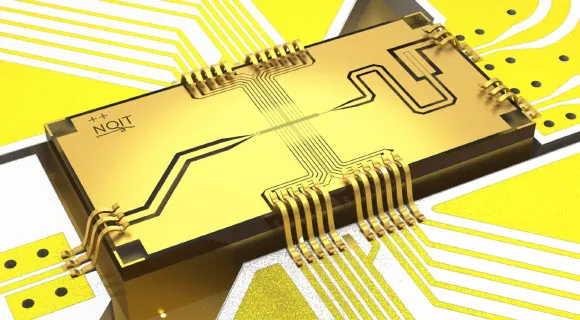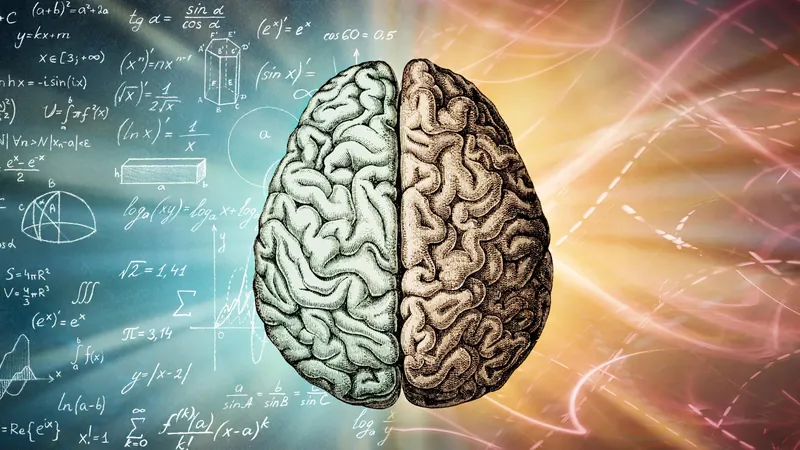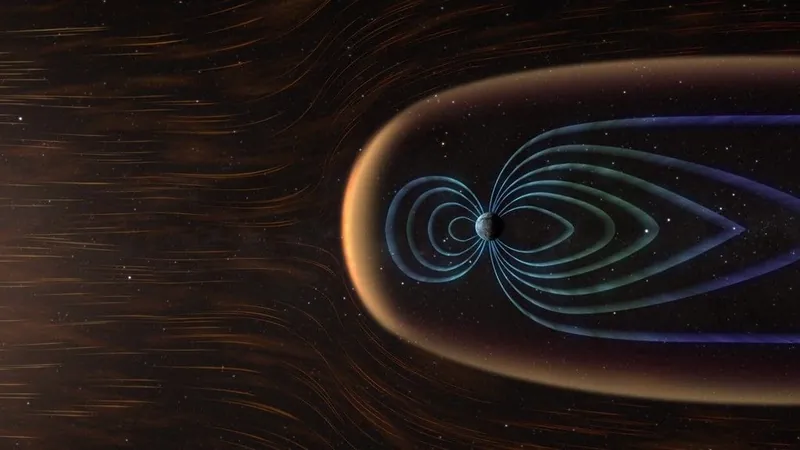
Breakthrough Achievement: Scientists Smash Record for Quantum Computing Accuracy!
2025-06-10
Author: Yu
A Quantum Leap in Precision
In an astounding breakthrough, a team of physicists at the University of Oxford has hit a monumental milestone in quantum computing by achieving the world's lowest-ever error rate for a quantum logic operation. With a staggering accuracy of just 0.000015%—translating to merely one error in 6.7 million operations—this achievement could revolutionize quantum technology!
Expert Praise for Groundbreaking Results
Professor David Lucas from Oxford stated, “As far as we know, this is the most accurate qubit operation ever recorded around the globe.” He emphasized that this significant progress paves the way for building practical quantum computers capable of tackling complex real-world challenges.
Why Error Rates Matter
In the realm of quantum computing, precision is everything. A quantum computer must run millions of operations across numerous qubits to perform useful calculations. A high error rate could render the final outcomes meaningless. Although error correction methods exist, they require additional qubits, driving up the size and cost of quantum machines.
Innovative Methods, Less Infrastructure Needed
The innovative approach taken by the Oxford team drastically lowers the chance of error and decreases the qubit count necessary for effective error correction. Graduate student Molly Smith noted, “This work significantly reduces the infrastructure required for error correction, paving the way for quantum computers that are smaller, faster, and more efficient.”
Expanded Applications Beyond Computing
The breakthrough not only enhances quantum computing but also opens doors for various quantum technologies, including ultra-accurate clocks and quantum sensors. The team achieved this unprecedented precision using a trapped calcium ion, a natural choice for storing quantum information due to its longevity and durability.
A New Approach to Control
Unlike traditional methods relying on lasers, the researchers utilized electronic (microwave) signals to control the quantum state of calcium ions. This method offers greater stability and simplifies the integration into ion trapping chips. Furthermore, the experiment was successfully conducted at room temperature without the need for magnetic shielding, drastically reducing the technical hurdles for practical quantum computers.
Future Challenges Ahead
While this record-breaking achievement marks a significant milestone, it’s part of an ongoing struggle in quantum computing. To function effectively, both single- and two-qubit gates need to work synergistically. Currently, the performance of two-qubit gates lags behind, with error rates still around 1 in 2,000. Addressing this challenge is crucial for the advancement of fully fault-tolerant quantum machines.
Published Research that Inspires!
The research, published in the prestigious journal Physical Review Letters, showcases a landmark achievement that could transform the landscape of computing and technology as we know it. Prepare for a future where quantum computers become a reality, capable of solving problems we haven’t even dreamed of yet!






 Brasil (PT)
Brasil (PT)
 Canada (EN)
Canada (EN)
 Chile (ES)
Chile (ES)
 Česko (CS)
Česko (CS)
 대한민국 (KO)
대한민국 (KO)
 España (ES)
España (ES)
 France (FR)
France (FR)
 Hong Kong (EN)
Hong Kong (EN)
 Italia (IT)
Italia (IT)
 日本 (JA)
日本 (JA)
 Magyarország (HU)
Magyarország (HU)
 Norge (NO)
Norge (NO)
 Polska (PL)
Polska (PL)
 Schweiz (DE)
Schweiz (DE)
 Singapore (EN)
Singapore (EN)
 Sverige (SV)
Sverige (SV)
 Suomi (FI)
Suomi (FI)
 Türkiye (TR)
Türkiye (TR)
 الإمارات العربية المتحدة (AR)
الإمارات العربية المتحدة (AR)